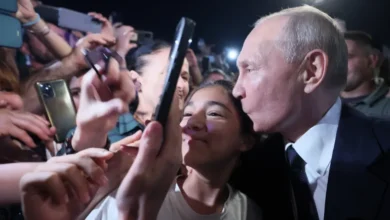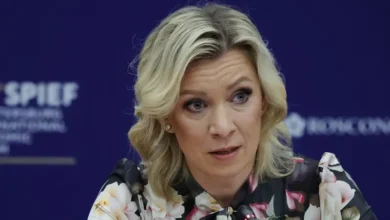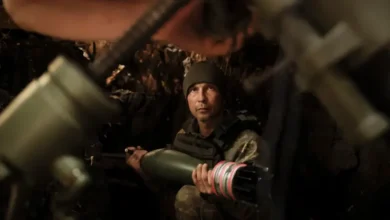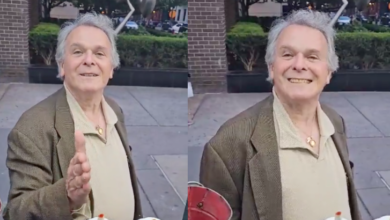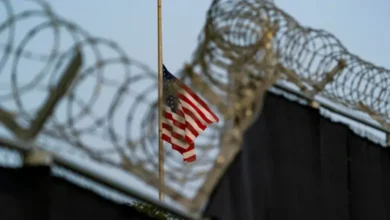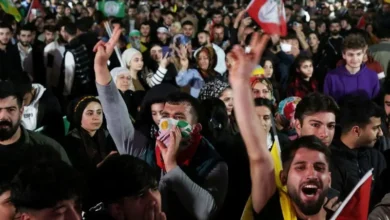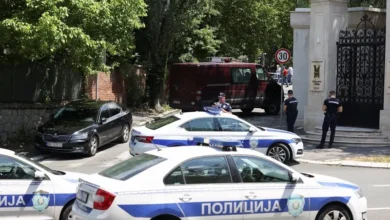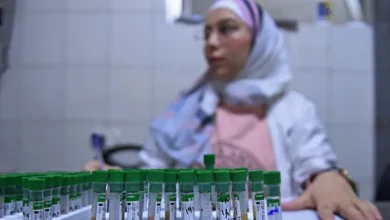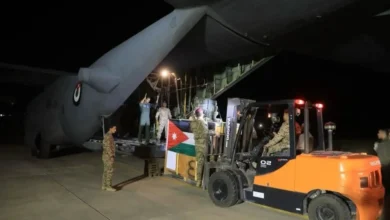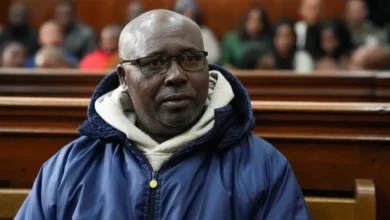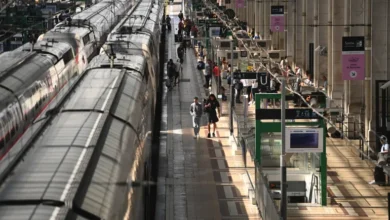Wagner chief’s attacks on top brass: Harbinger of Putin’s weakness or calculated bet?
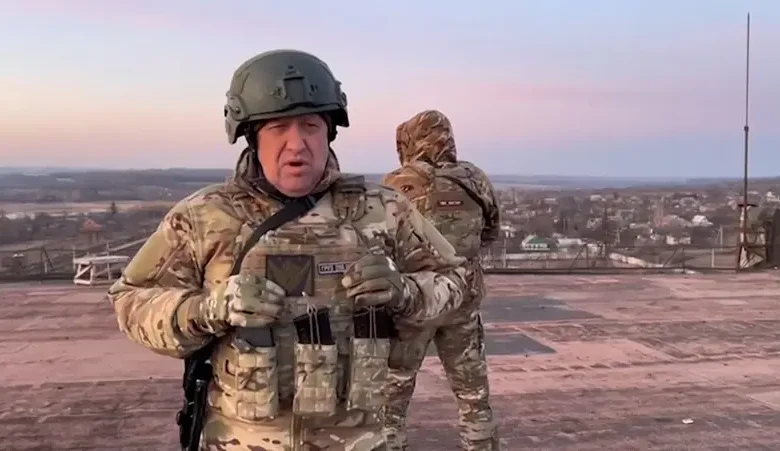
The chief of Russia’s mercenary group Wagner, Yevgeny Prigozhin, has turned heads and dominated headlines with his recent public rants attacking Moscow’s top brass, and even taking a direct shot at President Vladimir Putin in a thinly veiled mocking comment.
Analysts posit that these public outbursts are calculated attempts to challenge and undermine the President’s authority and if left unchecked by the Kremlin they could pose a risk to Putin’s established norms.
Prigozhin’s online tantrums against Russian military leadership have recently escalated. He has criticized Russian army’s troops for withdrawal from combat zones in Ukraine where fighting intensified, made accusations that Russian forces were responsible for downing their own planes, and voiced threats of pulling his forces from the embattled city of Bakhmut – a key battleground in the war against Ukraine.
Not to mention how he capitalized on Russia’s Victory Day anniversary as an occasion to ridicule Putin and cast doubt on his judgement, marking his boldest challenges of Putin so far, the think tank Institute for the Study of War (ISW) highlighted in an assessment.
On Victory Day, Prigozhin referred to a “happy grandfather” figure – a reference to Putin who is often referred to as grandfather – who “thinks that he is good” within the context of discussing Russia’s prospects in Ukraine. He then questioned how Russia can win if the “grandfather” turns out to be a “complete asshole.”
However, Prigozhin quickly backtracked on the “grandfather” comment, posting later that he was referring to the former deputy defense minister or chief of general staff.
Yet, despite backpedaling from outright mocking Putin, analysts say that Prigozhin’s public criticism or “rhetorical stunts” were attempts to “upstage Putin’s authority,” according to the ISW.
The ISW warned of the consequence of allowing the Wagner chief to continue his public tirades without the Kremlin taking any action: “Prigozhin’s escalating attacks on Putin may — if the Kremlin does not respond to Prigozhin’s thinly veiled criticism of Putin on Victory Day — further erode the norm in Putin’s system in which individual actors can jockey for position and influence (and drop in and out of Putin’s favor) but cannot directly criticize Putin.”
The Wagner chief has also continued to blame high Russian casualties and the slow pace of advances in key battleground and front lines on the Russian army and its top leadership, at the same time polishing up his own mercenary forces and painting them as the only truly competent force making solid advances against Ukrainian forces.
“Prigozhin’s public attacks on Russia’s military leadership reflect his rising profile and growing swagger… [thanks to] the full-scale invasion of Ukraine in February 2022 that transformed the fortunes of the mercenary force and thrust it into the international limelight,” wrote Olivia Yanchik program assistant with the Atlantic Council’s Eurasia Center.
Yanchik highlighted how the Wagner forces have managed to achieve various advances in battlegrounds in Ukraine where Russian military have failed to make headway. “This has given Prigozhin the confidence and the clout to name and shame his superiors for their alleged shortcomings. Such attacks have only added to his popularity among Russian audiences,” she said.
Why has Prigozhin not mysteriously fallen out of a five-story balcony?
After everything Prigozhin has said – attacking top military brass, mocking Putin, and threatening to withdraw his forces and release details of Russian military failures if his demands were not met – how is he allowed to continue his critical outbursts? Why hasn’t he mysteriously fallen out of a five-story balcony or have his morning coffee sweetened with the deadly nerve agent Novichok? Russians have either been incarcerated or have met their demise for much less.
Why has Putin not stepped in to put an end to Prigozhin’s public outbursts? Yanchik said: “Some see it as a sign of the Russian dictator’s own growing weakness, while others argue that it may be a deliberate ploy to position the likes of Defense Minister Shoigu and army chief Gerasimov as scapegoats for a coming defeat. At the very least, Prigozhin’s attacks on military commanders serve to deflect the blame for the failing invasion away from Putin himself.”
Kateryna Stepanenko, an expert on Russian military at the ISW, told Business Insider that Putin was highly likely letting the commanders of Wagner group and the defense ministry compete against one another and battle each other for influence. “[Putin] is definitely pitting those two factions against one another… [He] is definitely the mastermind that juggles the two of them,” wrote Stepanenko.
As for how Prigozhin was allowed to say what he says with no apparent consequences, Stepanenko argued that ultranationalists such as the Wagner chief “serve as a source of recruitment for force generation efforts for Putin” who is trying to avoid another mobilization which created country-wide discontent.
Additionally, the Wagner chief is a leading figure in the Russian ultranationalist network – a community that Putin doesn’t want to upset by simply killing Prigozhin. “He, of course, could, but that would undermine his appeal to the nationalists, who are the only people that are so inherently invested in his ideology and his belief in this war,” said Stepanenko.
Another possible explanation for Prigozhin’s seemingly “suicidal acts of defiance” against the Kremlin is that a power struggle has emerged within Putin’s inner circle and the Wagner chief is positioning himself to be Russia’s next leader, Ivana Stradner, Russia expert with the Foundation for the Defense of Democracies think tank, told online military-focused publication Task & Purpose.
She said: “Inside Russia, things are collapsing, and within different inner circles there is literally chaos because at the end of the day, for them, it is all about who is going to control Russian resources after Putin; and therefore, who are going to be new billionaires and Russian oligarchs.”
She added that the “Kremlin palace intrigue has become so volatile” which shows “how right-wing Russian groups are slowly turning against Putin because he is losing the war in Ukraine.”
Another analysis of the situation contends that Prigozhin has crossed the line and Putin will either bring down the hammer or risk losing face.
Sergey Radchenko, a historian of the Cold War at the Johns Hopkins School of Advanced International Studies, wrote on Twitter: “This isn’t meant to happen in Putin’s system. Putin’s system allows for minions to attack each other but never undermine the vertical. Prigozhin is crossing this line. Either Putin responds and Prigozhin is toast or – if this doesn’t happen – a signal will be sent right through.”
He added: “A signal that the boss has been fatally weakened. And this is a system that does not respect weakness.”
